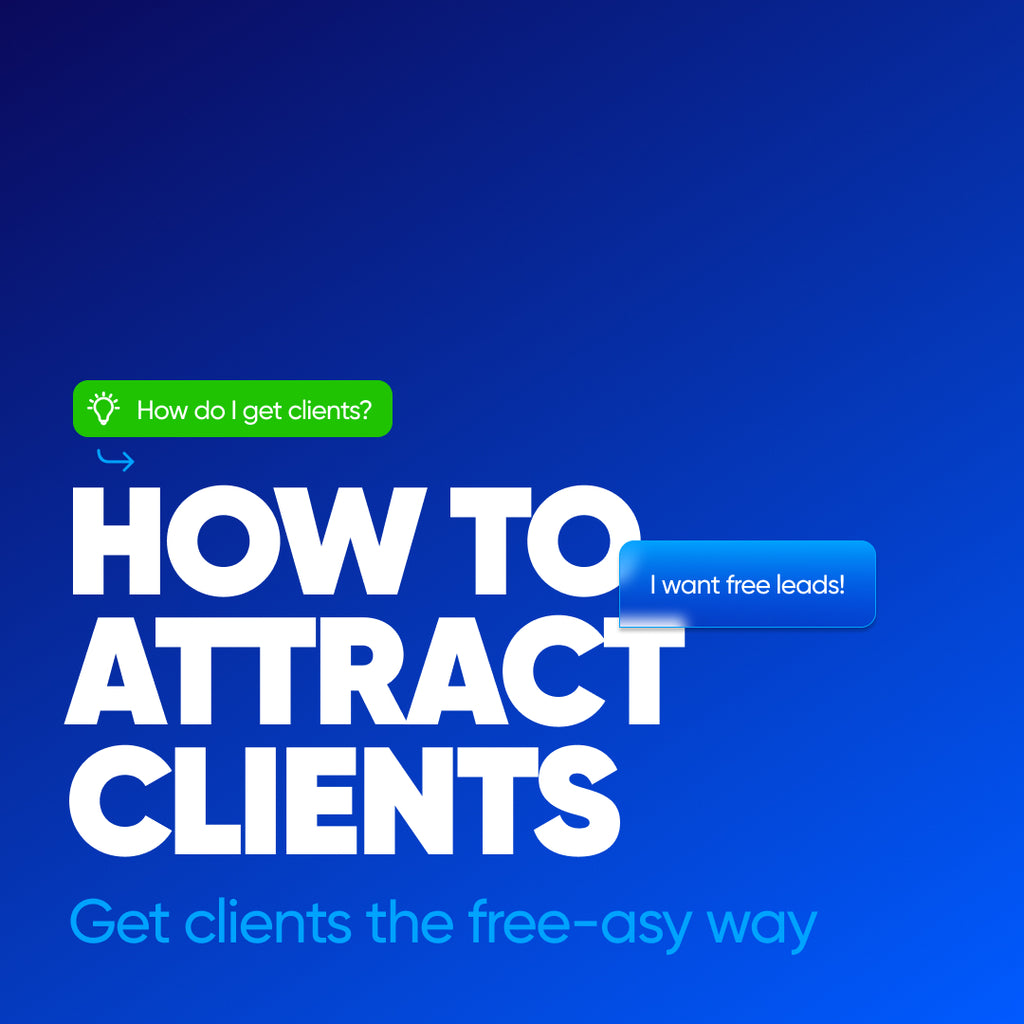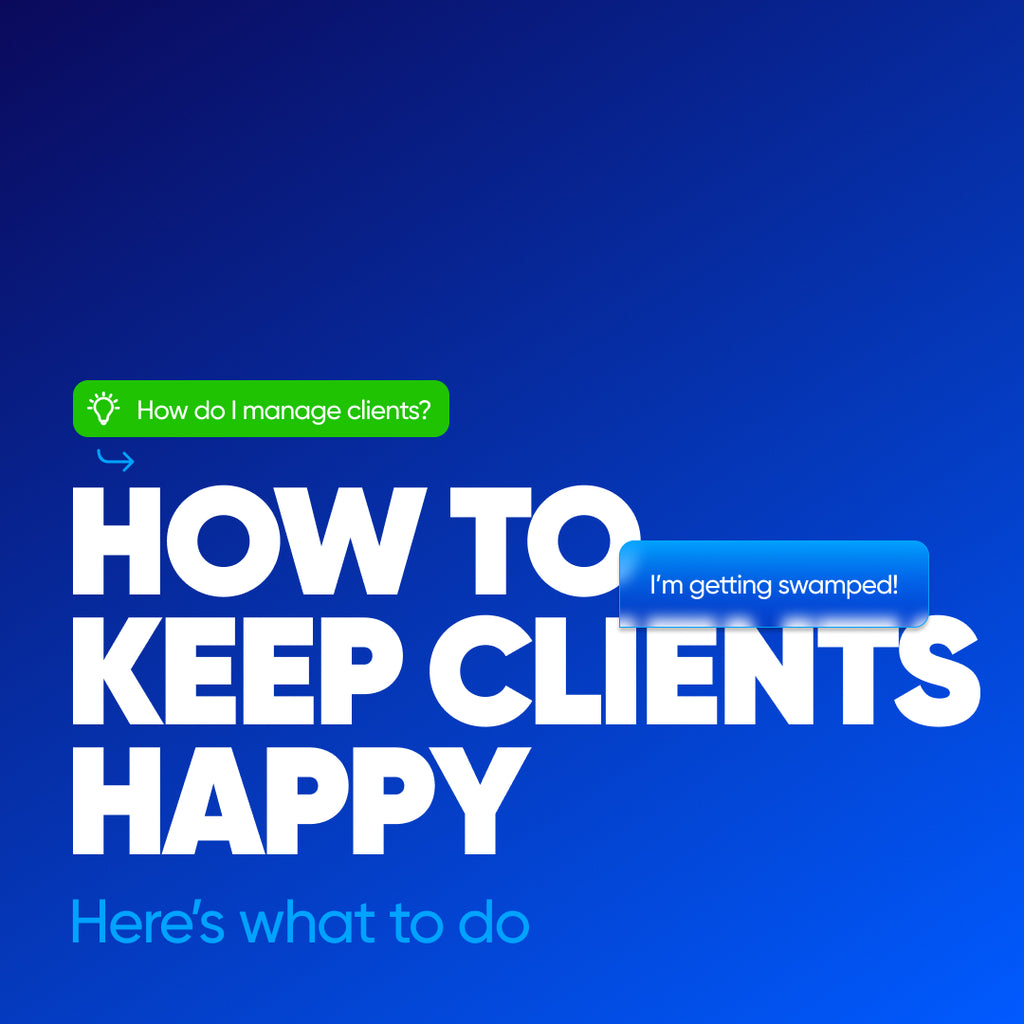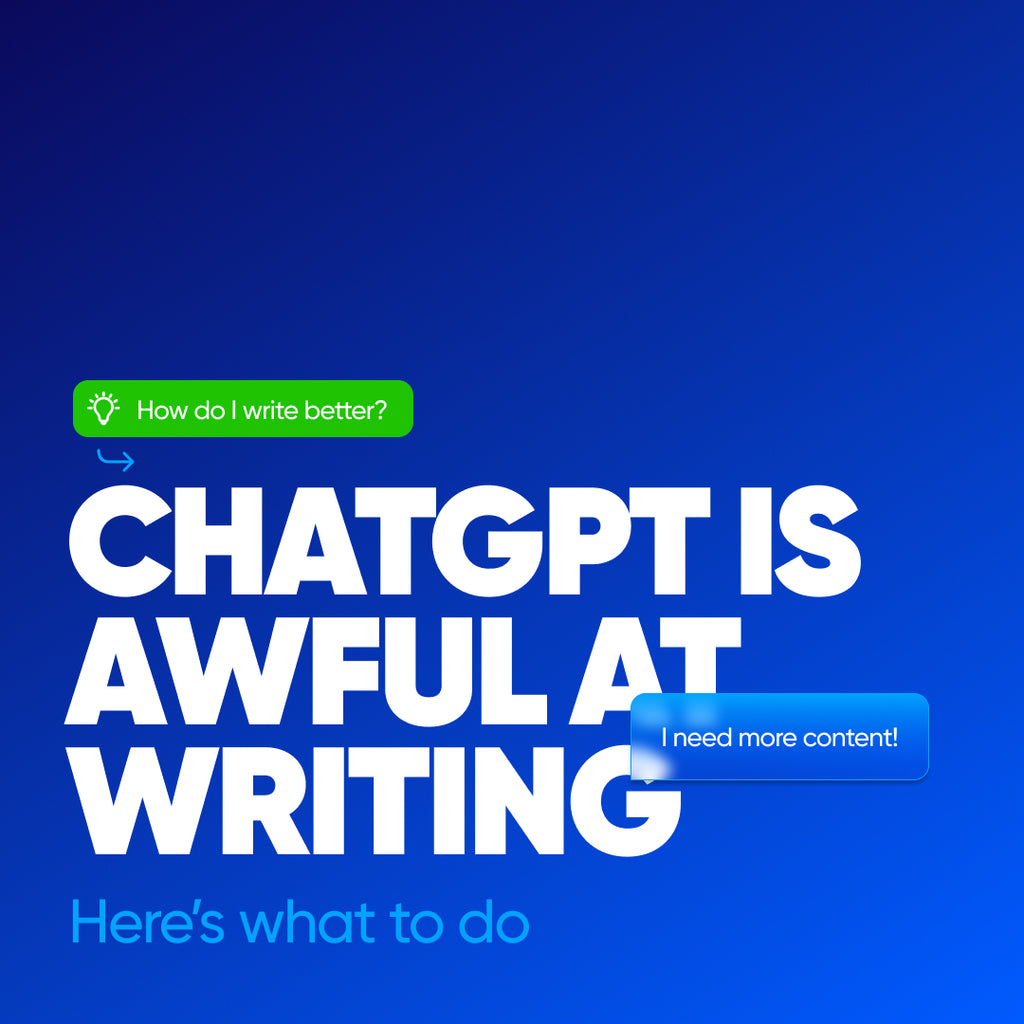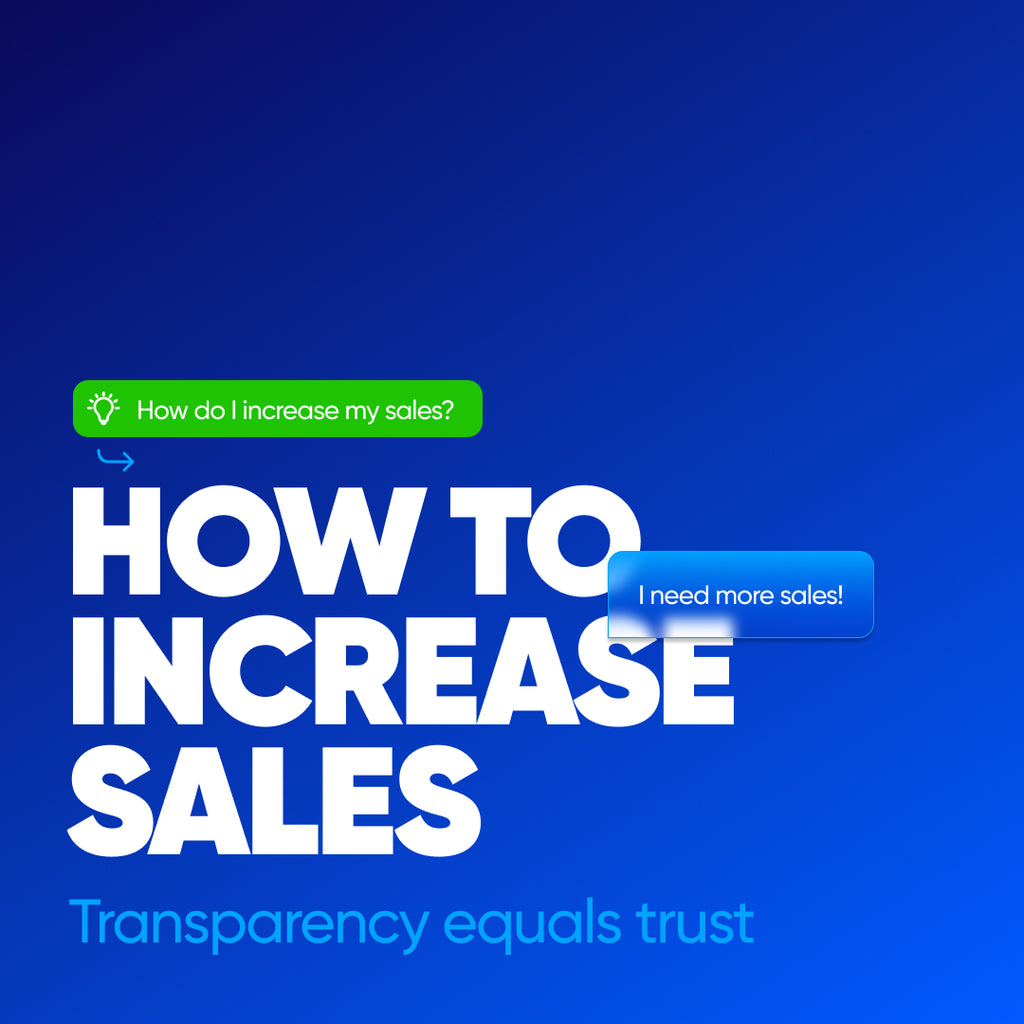Contents
I break down my 3 step program to help you find clients and get freelance work on the LinkedIn platform.
Quick Summary: My 3-Step System to Get Freelance Work on LinkedIn
NEW: Building Your Network for Freelance Success
Step 1: How to Use LinkedIn Search to Find Freelance Jobs
Why this works:
Step 2: Attracting Inbound Leads on LinkedIn
The importance of common keywords
Quick LinkedIn profile checklist for inbound leads:
Step 3: Outreach—The Art of Starting Conversations Without Being Spammy
So let’s make your outreach strategic and simple:
Avoid this common freelancer mistake:
Crafting Effective Proposals That Win Clients
Leveraging LinkedIn social media and Online Communities for More Opportunities
The Power of Consistency
LinkedIn Is a Freelance Goldmine—If You Use It Right
I break down my 3 step program to help you find clients and get freelance work on the LinkedIn platform.
Freelancing isn’t just about doing great work—it’s about finding that work in the first place. This article serves as a practical guide for freelancers looking to enhance their LinkedIn presence and career prospects. And if you’re not leveraging LinkedIn to its fullest, you’re missing out on a goldmine of freelance opportunities just waiting for someone like you to grab them.
At the beginning of your freelance journey on LinkedIn, it’s crucial to start strong and set up your profile for maximum impact.
This post breaks down my 3-step system for finding freelance work on LinkedIn in a way that’s strategic, simple, and repeatable. Whether you’re a designer, developer, copywriter, marketer, or another flavor of freelancer, this system works across the board.
When you optimize your LinkedIn presence, you increase your chances of being discovered because companies and recruiters actively search LinkedIn for keywords related to skills and expertise. A well-optimized profile helps attract these companies and improves your visibility in search results.
Quick Summary: My 3-Step System to Get Freelance Work on LinkedIn
Here are 3 actionable tips to get freelance work on LinkedIn. Focus on these steps to maximize your results:
-
Search – Use LinkedIn’s search feature like a pro. Find fresh freelance job posts, organize them in a spreadsheet, and reach out strategically. No bidding wars, no platform fees—just you, a spreadsheet, and a whole lot of opportunities.
-
Inbound – Let clients come to you by optimizing your LinkedIn profile with the exact keywords they’re using to search for freelancers. Inbound leads = less hustle, more flow.
-
Outreach – Reach out to potential clients with short, simple, non-spammy messages that show who you are, what problem you solve, and how you can help. Keep it concise, confident, and conversion-focused.
Focus on these core actions to stand out and attract the right opportunities.
But first, a little context…
Your freelance business should be like a well-diversified investment portfolio. You don’t bet everything on one stock, and you shouldn’t bet everything on one platform either. Sure, Upwork, Fiverr, your personal website, and social media platforms like TikTok, Instagram, and Facebook all have their place. But LinkedIn? It’s the professional playground where clients actively look for help, and they want experts who know how to show up.
By diversifying your presence across multiple platforms, you’re not only expanding your potential income streams—you’re also future-proofing your business. Platforms change, algorithms shift, some get bought out, and others implode (cough Vine, anyone?). Worst case scenario, you get banned for some vague reason with no recourse. If that’s your only source of clients, you’re toast.
So, ready to future-proof your freelance career? Let’s get into the 3 foundational steps to get freelance work on LinkedIn.
NEW: Building Your Network for Freelance Success
Why your network matters—and how to grow it strategically on LinkedIn
Your network is your secret weapon as a freelancer on LinkedIn. The more connections you have with other freelancers, clients, and industry leaders, the more job opportunities and referrals will come your way. But it’s not just about racking up numbers—it’s about building relationships that actually move your freelance career forward.
Start by joining relevant LinkedIn groups that match your skill set or industry. These groups are packed with members sharing job leads, discussing best practices, and looking for talent. Don’t just join—participate! Comment on posts, answer questions, and share your own insights to build relationships and boost your visibility. The more you engage, the more likely you are to attract the attention of clients and other freelancers who can refer you for projects.
Use LinkedIn’s “People You May Know” feature to discover new connections in your niche. Reach out to past clients, colleagues, and even other freelancers you admire—sometimes the best referrals come from people who do similar work. When you focus on building a network of relevant, engaged connections, you’ll find yourself in the loop for new projects, collaborations, and industry trends.
Remember, every connection is a potential door to new opportunities. By strategically growing your network, you’re not just increasing your visibility—you’re positioning yourself for long-term freelance success.
Step 1: How to Use LinkedIn Search to Find Freelance Jobs
Before you start searching for freelance jobs, make sure to log into your LinkedIn account to access all features.
Freelance jobs are everywhere on LinkedIn, but most people only scratch the surface because they don’t know how to use the search function properly. “Oh, search for ‘freelance designer’—got it.” Yeah… but it’s not just about typing in “freelance” and hoping for the best. Access to LinkedIn’s advanced search tools is crucial for freelancers to discover the best opportunities and connect with potential clients.
This is about going beyond the basics and turning LinkedIn Search into your personal freelance project radar. Expanding your network is a key benefit of using LinkedIn search, helping you connect with industry professionals and grow your freelance career.
Here’s how I do it:
-
Click that search bar at the top of the screen.
-
Type in the freelance position you’re after + “we’re hiring” or “looking for” or “need help with.” For example: “freelance copywriter we’re hiring” or “looking for freelance web designer.”
-
Once you hit search, click “Posts” instead of “Jobs” because many freelance gigs never make it to the formal job listing. Clients post, “Hey, looking for a freelance designer to help with a quick project,” and that’s it.
-
Sort by “Most Recent” to see the freshest opportunities. No point in chasing a gig from three months ago that was likely filled ages ago.
-
Read the posts and job postings carefully to find legit opportunities. Not all posts or job postings are going to be the right fit, and that’s okay.
You’ll start to notice patterns—people in your niche asking for help, industry-specific hashtags, and groups where job requests get posted.
Bonus Pro Tip: Organize your leads
At any given time, I find between 400-600 freelance opportunities on LinkedIn. No, I’m not contacting every single one—because I enjoy sleeping and eating food that doesn’t come out of a microwave.
Instead, I organize all these leads in a spreadsheet (Google Sheets is my weapon of choice). Spend 10-15 minutes a day updating it with new leads.
Your spreadsheet can track:
-
The client’s name
-
Their LinkedIn profile link
-
Date you reached out
-
Type of freelance service they need
-
Your follow-up schedule
Once you’ve got your spreadsheet humming along, try reaching out to 30-40 people per day who are posting freelance jobs in your niche.
Why this works:
Because on LinkedIn, most freelancers aren’t doing this. Unlike Upwork, where there are dozens—if not hundreds—of bids on each job, LinkedIn job posts often get maybe three freelancers reaching out.
No bidding wars.
No platform fees taking 20% of your hard-earned money.
Just human-to-human conversations.
You don’t know when you’ll stumble on the right freelance job, so keep adding to that list. Even if the lead isn’t hot right now, by following up once every few months, you could unlock new freelance projects when the timing is right.
Also, your spreadsheet becomes a data goldmine—analyzing past clients, seeing where you found the most opportunities, and optimizing your search strategy for even better results next time.
Step 2: Attracting Inbound Leads on LinkedIn
Let’s be honest: the holy grail of freelancing is when clients come to you.
Waking up to LinkedIn messages like “Hey, are you available for a project?” feels amazing. It’s like getting a bonus round in Mario Kart.
But inbound leads don’t just magically happen. Creating a comprehensive LinkedIn profile or services page is essential. You need to set up your LinkedIn profile so that clients can find you when they’re searching for freelancers, and so they can easily access your profile to review your skills and experience.
If you’re struggling to get noticed by clients, it makes sense to invest time in optimizing your LinkedIn profile.
Here’s my process:
-
Search for job opportunities on LinkedIn as if you were looking to hire someone like you.
-
Read through 10-20 job descriptions.
-
Identify common keywords that hiring managers use repeatedly in their posts.
-
Add those keywords strategically to your LinkedIn profile—especially in your headline, summary, and skills section.
Clients aren’t always technically savvy. If you’re a front-end developer and your profile only mentions “React” and “Next.js,” but every hiring manager is posting about “web development help” or “website designer,” guess what? They’re going to miss you.
So, use their language. Mirror their phrasing. It makes your profile infinitely more discoverable.
The importance of common keywords
Just like you’re hunting for clients, hiring managers are on the lookout for freelancers. They’re not necessarily experts in your field—they’re often overwhelmed business owners or overworked team leads who need a solution yesterday.
If they search LinkedIn for “freelance designer” and you’ve got “Creative Visual Storyteller” in your headline but never mention “designer,” you’re invisible.
Inbound leads happen when your profile is optimized for discovery.
Quick LinkedIn profile checklist for inbound leads:
-
Headline that clearly states your freelance role: “Freelance Copywriter | Content Strategist | Helping Brands Grow”
-
Summary with common keywords AND your personality
-
Up-to-date experience section with descriptions of your freelance work
-
Clear “open to work” signal if you want it
-
Links to your portfolio or website
Once your profile is optimized, LinkedIn does the heavy lifting for you. Your profile shows up in searches, you get invites to connect, and suddenly, instead of scrambling to find clients, clients are finding you.
NEW: Creating a Personal Brand That Attracts Clients
Stand out from the crowd and become the go-to freelancer in your niche
In a sea of freelancers, your personal brand is what makes you memorable—and what makes clients want to work with you. Think of your LinkedIn profile as your digital storefront: it should showcase your work ethic, expertise, and the unique value you bring to every project.
Start by defining your niche and pinpointing what sets you apart from other freelancers. Are you the copywriter who always delivers ahead of deadline? The designer with a knack for turning boring brands into visual standouts? Whatever your superpower, make it the centerpiece of your message.
Craft a clear, concise value proposition and weave it into your LinkedIn posts, comments, and profile summary. Use relevant keywords throughout your profile to ensure you show up in searches for your services and skills. Don’t be afraid to share your thoughts and expertise in LinkedIn posts or articles—creating and commenting on content helps establish you as a go-to expert in your industry.
Finally, make sure your LinkedIn profile is fully optimized: up-to-date, complete, and packed with details that highlight your skills, services, and positive work ethic. When your personal brand is consistent and compelling, you’ll naturally attract more clients and stand out as the freelancer everyone wants to hire.
Step 3: Outreach—The Art of Starting Conversations Without Being Spammy
Here are some tips for effective outreach on LinkedIn. Outreach gets a bad rap. Everyone thinks of outreach as “cold” and impersonal. But on LinkedIn, it’s different. The person you’re contacting already asked for help. They posted a request. They need a freelancer. You’re not spamming—they want someone like you.
When reaching out, show genuine interest in the client’s project to build trust and credibility. Focus on clients who are interested in your services, and remember that every outreach is also an opportunity to expand your professional network. Write concise and effective outreach messages that clearly communicate your value and enthusiasm for the project. Effective outreach is the first step in building a professional relationship with potential clients.
So let’s make your outreach strategic and simple:
When I see someone posting about a freelance need, I don’t overthink it. I send them a connection request that includes four key pieces of information:
-
Who I am
-
What problem I solve
-
How much it costs
-
When I can start
Optional: If it’s a fixed deliverable (like a logo design or blog post), I also tell them how long it will take.
Here’s an example:
"Hi [Name], saw your post about needing help with website copy. I’m a freelance copywriter who specializes in optimizing service pages. My typical rate is $75/hour and I’m available to start this week. Let me know if you’d like to chat!"
That’s it.
No five-paragraph essays. No life story. No “let me know if you’d like my portfolio”—they can check your LinkedIn for that.
Why short messages work:
Because clients are busy. They want to know:
-
Who are you?
-
Can you solve my problem?
-
Can I afford you?
-
When can you start?
Give them those answers upfront, and you make it easy for them to say yes (or no, which is also fine because you want to filter out the tire-kickers).
Avoid this common freelancer mistake:
Writing long, detailed outreach messages explaining everything about your process.
Clients don’t care about your process (yet). They just want to know if you can get the job done.
Also, drawn-out back-and-forth conversations slow you down and kill your momentum. Remember: sales conversion rates are around 2-4%. That means for every 100 people you contact, maybe 2-4 will turn into clients.
If you’re spending 30 minutes crafting a long message for each prospect, you’re wasting time.
Keep it short. Keep it actionable. Move on.
Crafting Effective Proposals That Win Clients
Crafting effective proposals is the secret sauce to landing freelance work on LinkedIn. Your proposal is often the first impression a client gets of your skill set, work ethic, and expertise—so it needs to shine. Think of it as your audition for the role: you want to show you understand the client’s needs, can deliver the right services, and are the best fit for their project.
A winning proposal on LinkedIn isn’t just a generic message—it’s a tailored, thoughtful response that speaks directly to the client’s industry and project. Start by reading the client’s post carefully, then create a message that addresses their specific challenges and goals. Highlight your relevant skills and experience, and make it clear how your expertise will benefit their business. Remember, your proposal should be as much about the client as it is about you.
What makes a proposal stand out on LinkedIn
To stand out on LinkedIn, your proposal needs to be personalized, concise, and visually easy to scan. Open with a line that shows you’ve read the client’s post and understand their needs. Clearly outline the services you offer and the unique benefits you bring to the table. Don’t be shy about including positive reviews or testimonials from past clients—these boost your credibility and reassure potential clients that you deliver results. As Annalise Keating (Viola Davis) would say, “Preparation is everything.” So, put your best foot forward and make sure every proposal is a showcase of your professionalism and value.
My proven proposal template
Here’s the proposal template I use to consistently win clients on LinkedIn:
-
Introduction: Briefly introduce yourself, your services, and your expertise in the industry.
-
Problem statement: Show you understand the client’s needs by summarizing their challenge or project goal.
-
Solution: Explain how you’ll address their needs with your specific skills and services.
-
Benefits: Highlight the benefits of working with you—think increased efficiency, cost savings, or improved quality.
-
Call to action: End with a clear request, such as scheduling a call or discussing the project further.
-
Conclusion: Wrap up with a quick summary and a thank you for their time.
This structure keeps your message focused and makes it easy for the client to see why you’re the right fit.
Common mistakes to avoid in your proposals
Even the most talented freelancers can lose out on jobs by making simple proposal mistakes. Avoid sending generic, copy-paste messages that don’t address the client’s specific industry or needs. Double-check your writing for grammar and clarity—sloppy proposals can undermine your expertise. Be sure to clearly state the services you offer and the benefits you provide, and don’t leave out important details about your experience. Finally, keep your tone professional and friendly; a little personality goes a long way, but unprofessional language can turn clients off. Remember, your proposal is your chance to make a strong first impression—make every word count.
Leveraging LinkedIn social media and Online Communities for More Opportunities
If you want to supercharge your freelance career, don’t just rely on your LinkedIn profile—get active in LinkedIn groups, online communities, and job postings for freelance jobs. These spaces are goldmines for job opportunities, networking, and building relationships with other freelancers and potential clients. By joining relevant groups and participating in discussions, you boost your visibility and position yourself as an engaged, knowledgeable member of your industry.
LinkedIn groups are especially powerful for freelancers looking for job opportunities. They’re where industry conversations happen, job leads get shared, and connections are made. When you contribute to discussions, answer questions, or share your expertise, you’re not just building relationships—you’re also putting your name in front of clients who are looking for talent. Plus, you’ll stay up-to-date on industry trends and best practices, which helps you keep your services relevant and in demand.
Where to find active freelance communities on the LinkedIn social media platform
Finding the right LinkedIn groups is all about using the right keywords in your search. Look for groups like “freelance writing,” “freelance design,” or “freelance programming,” or search for industry-specific communities such as “marketing,” “healthcare,” or “technology.” Some of the most active groups include the Freelance Writers’ Group, Freelance Designers’ Group, and the LinkedIn Freelance Group. Once you join, don’t just lurk—jump into conversations, share your insights, and connect with other members.
Building relationships in these groups can lead to direct job opportunities, referrals, and collaborations with other freelancers. As Shonda Rhimes, the creative force behind hit shows like Grey’s Anatomy, Scandal, and How to Get Away with Murder, would say, “Success is about being part of a community that supports and uplifts you.” Just as her shows feature law students from diverse backgrounds, online communities bring together professionals with a wide range of experiences and perspectives. And much like the complex storylines in How to Get Away with Murder—where murder, Rebecca’s involvement, and Sam’s death create unexpected twists—navigating freelance life and online groups can be full of surprises and challenges. So, make it a habit to participate in group discussions, offer value, and connect with people who share your interests and goals. The more you engage, the more you’ll get out of these communities—and the more likely you are to land your next big freelance project.
NEW: Overcoming Common Challenges as a LinkedIn Freelancer
How to handle rejection, ghosting, and slow periods
Freelancing on LinkedIn isn’t always smooth sailing. You’ll face rejection, get ghosted by clients, and hit slow periods where job opportunities seem to dry up. The key to long-term success is how you respond to these challenges.
When you get rejected, don’t let it shake your confidence. Instead, treat it as feedback—review your pitch, refine your services, and keep improving your skills. If a client stops responding (hello, ghosting), follow up politely once or twice, then move on and focus your energy on new prospects. Remember, every “no” brings you closer to a “yes.”
During slow periods, double down on building your skills, updating your LinkedIn profile, and expanding your network. Use LinkedIn’s job search features to find new opportunities, and consider offering in-demand services or packages to attract new clients. Stay proactive: post updates, share your expertise, and keep your name in front of your network.
By staying resilient, focused, and adaptable, you’ll not only overcome the bumps in the road—you’ll position yourself for even greater freelance success on LinkedIn.
The Power of Consistency
Like anything in freelancing, success on LinkedIn is about consistent action.
-
Daily: Spend 10-15 minutes adding new leads to your spreadsheet.
-
Daily: Reach out to 30-40 people posting freelance gigs.
-
Weekly: Update your LinkedIn profile with new keywords based on what you’re seeing in posts.
-
Monthly: Review your spreadsheet to analyze which types of outreach are converting best.
Consistency compounds. The more you engage, the more visible you become, and the more LinkedIn’s algorithm rewards your activity by showing your profile to more potential clients. Consistent action also leads to greater recognition on LinkedIn, helping you stand out in your industry. Over time, regular engagement allows you to build a strong network of professionals and potential clients. By maintaining this approach, you can position yourself as a leading freelancer in your field.
LinkedIn Is a Freelance Goldmine—If You Use It Right
LinkedIn isn’t just a place on social media to post your resume and hope for the best. It’s a living ecosystem where freelancers can:
-
Find direct job opportunities with little competition
-
Attract inbound leads through profile optimization
-
Build relationships with potential clients through simple, effective outreach
The freelancers who succeed on LinkedIn aren’t necessarily the most talented—they’re the most strategic. They understand how to find opportunities, how to make their profile discoverable, and how to connect with clients without sounding desperate.
So whether you’re brand new to freelancing or looking to diversify your lead generation beyond Upwork and Fiverr, this 3-step system will help you consistently find freelance work on LinkedIn.
Now get out there—optimize that profile, start those conversations, and make LinkedIn work for you!
Also Read: 3 Best Freelance Jobs for Beginners in 2023
Need help refining your LinkedIn profile or outreach strategy? Shoot me a message. Always happy to help fellow freelancers win more work.
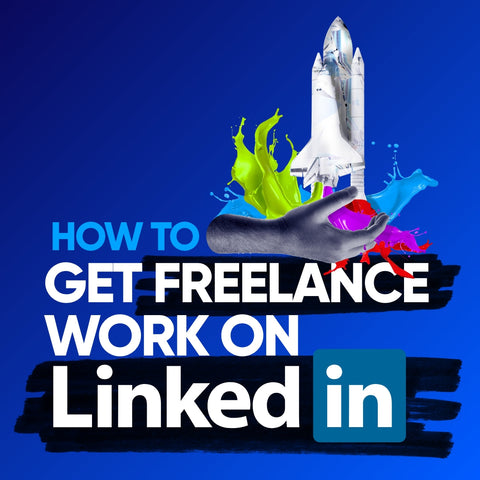
How to get freelance work on LinkedIn
First, share it!
Then, pick one of these:
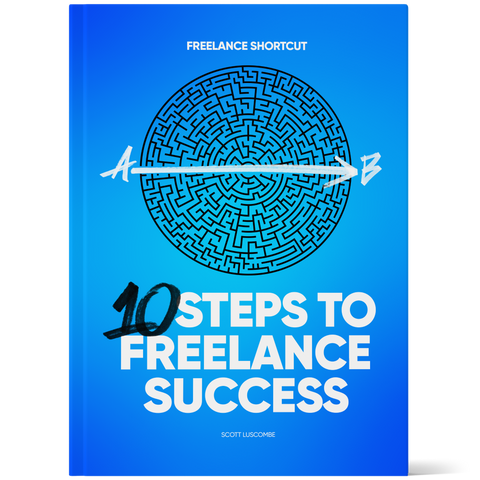
Freelance Book - 10 Step Success Shortcut
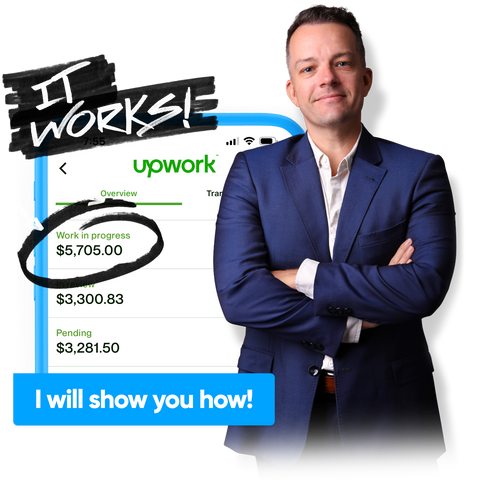
Freelance Coach

Daily Freelance Business Leads
Third, try these:

Project Management Tool For Freelancers

The Freelance Tools You Need!


